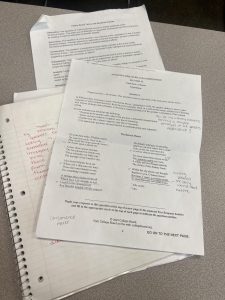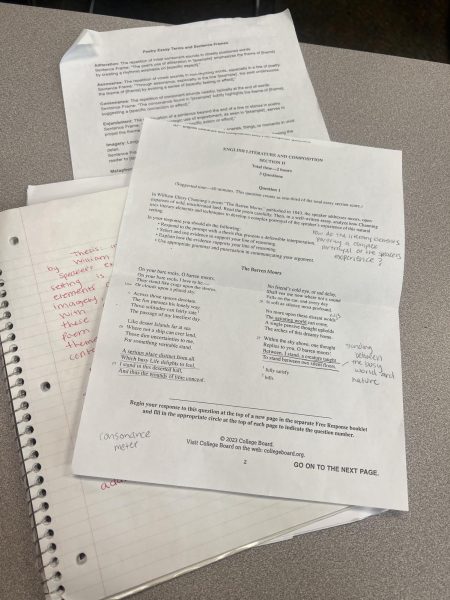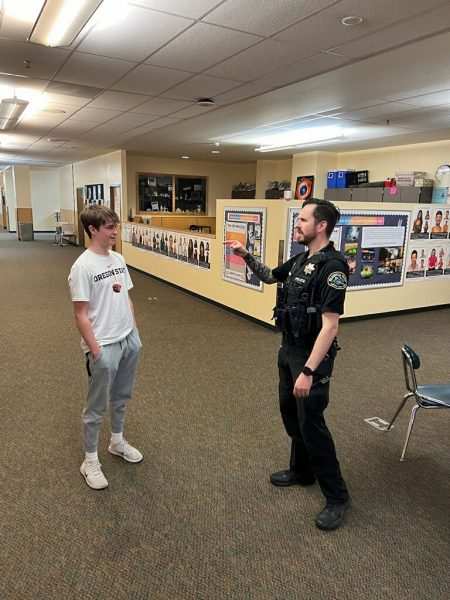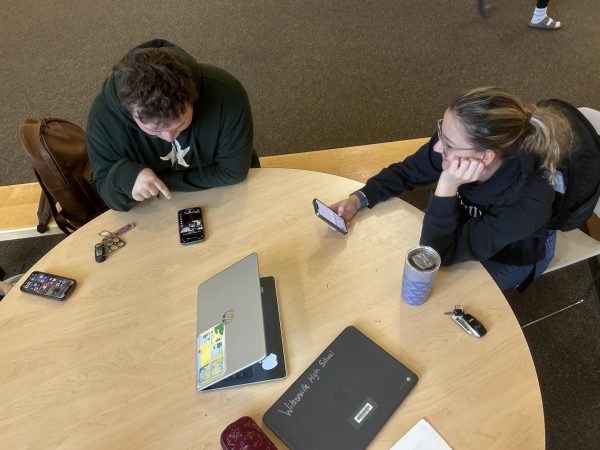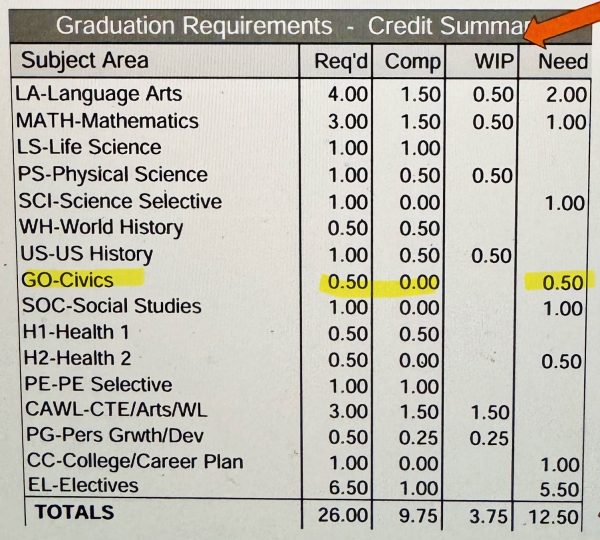Are bathroom breaks a distraction to in class learning?
Nick Summers, sophomore, debates whether or not he has enough time to take a bathroom break. He finds himself needing to rush back to class.
Bathroom breaks can be a lifesaver for students deprived of their learning energy, but because of this advantage, some students partake in other activities aside from using the restroom. As a result of this unfortunate conflict, classes can easily be dysfunctional in terms of breaks, and can make learning priorities frustrating to accomplish.
Cyndy Moehling, the leading French teacher at WVHS, has varied views on bathroom breaks. She thinks it depends on the students’ motives, but typically “it can be disruptive, they miss things when they come back.” But Mrs. Moehling tends to avoid denying a student’s right to go to the bathroom.
However Mrs. Moehling has noticed a general improvement in the number of students wisely using their bathroom breaks. She is “seeing less and less students being gone for longer periods of time,” but she always notices usual “suspects” who overextend their break.
Nick Summers, sophomore, thinks that there is an appropriate time to take a bathroom break during class. He advises students to wait if the “the teacher is talking,” and precede when they are aware of the initial assignment if there is any.
Kathrine Beaver, a junior, finds benefits to an appropriately managed bathroom break, but if students aren’t “using it to do other stuff, then I think taking a three minute break doesn’t set you back.” Additionally, several of Beavers’ classes are active participants of an offered five minute break, and she finds “they work better” for students.
There are many benefits to bathroom breaks as well as disadvantages, but the manner in which students use them will determine the overall impact it has on their learning.

